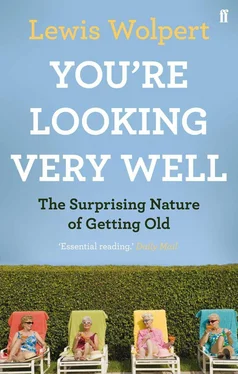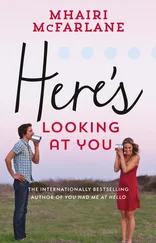Avoiding dementia, particularly Alzheimer’s, is a key problem if life is to be extended, as this afflicts one in twenty of those over 65. Researchers from the Institute of Psychiatry in London say that every extra year worked delays the onset of dementia by just over a month. So working until you are 70 instead of 65 is likely to give you an extra six Alzheimer’s-free months. I am not sure that is enough of a benefit to warrant the additional effort, but extending your working life is not the only thing you can do to protect yourself. The research supports previous theories that keeping the mind active for as long as possible can help to postpone mental decline. In contrast to earlier studies, however, the researchers found that the quality or duration of men’s education or the type of work they did had no impact on the age of onset of the disease.
A community of elderly people in New York with an average age of 77 were monitored for five and a half years. Standard neurological and psychological tests for Alzheimer’s were undertaken every 18 months. Higher physical activity was found to reduce the risk of Alzheimer’s by a third, while people who had a Mediterranean-style diet rich in fruits, vegetables, cereal and fish, but low in meat and poultry, showed a 40 per cent risk reduction. Participants who both exercised a lot and ate a Mediterranean-style diet had a 60 per cent reduced risk. So probably the best way to reduce the risk of dementia is to combine keeping physically active with eating a balanced diet, and getting blood pressure and cholesterol checked regularly.
Another study found that adults who ate fish a few days per week were almost 20 per cent less likely to develop dementia than those who ate no fish at all. Although drinking coffee had previously been linked to a lower risk of developing Alzheimer’s, a more recent study suggests that caffeine can directly target the disease itself. Mice with a rodent equivalent of the disease showed a 50 per cent reduction in levels of amyloid protein in their brains after scientists spiked their drinking water with caffeine. A small amount of alcohol can also help, but 10 per cent of cases of dementia are due to too much drink.
Attitude to ageing can itself have an effect and a positive attitude can extend life by some five years. In 1968 a team studied a group of people, who were aged 18 to 49, who completed a questionnaire that measured the extent to which they agreed with 16 negative views of ageing. These included beliefs that elderly people are ‘feeble’ and ‘helpless’. Thirty years later, 25 per cent of those who had negative beliefs about ageing had suffered heart disease or a stroke, compared with 13 per cent of those who rejected the such views. Those who viewed ageing as a positive experience lived an average of seven and a half years longer. Women who were optimistic about their future were 14 per cent less likely to die from any cause than pessimists, and 30 per cent less likely to die from heart disease after eight years of follow-up in the study. Further evidence for the positive role of mental activity comes from a study of nuns who had long lives, even though they had plaques of amyloid characteristic of Alzheimer’s disease in their brains. Positive self-perceptions of ageing have a greater impact on survival than lowered blood pressure or cholesterol. On the other hand, there is some evidence that stress, particularly short-term stress, can be beneficial and help reduce the ageing process, including Alzheimer’s. A very provocative contemporary view is that laziness and lack of exercise and ambition will extend the lifespan.
Though thousands of years old the ancient Taoist tradition of eating mushrooms and other magical substances together with eating less, as some wandering monks practised in India to extend life, is still with us. There are modern religious mystics who believe in the possibility of achieving physical immortality through spiritual transformation as a part of their religious doctrines. They believe that after God has called the Day of Judgment, they will go to what they describe as Mount Zion in Africa to live in freedom for ever. They avoid the term ‘everlasting life’ and deliberately use ‘ever-living’ instead. An example is the Rastafarian and Jamaican singer Bob Marley, who refused to write a will despite suffering from the final stages of an advanced metastasised cancer on the grounds that writing a will would mean he was ‘giving in to death’ and forgoing his chance of living for ever. A group called the Rebirthers believe that they can acquire immortality by following the ‘connected’ breathing process of rebirthing.
The multi-million-pound industry based on anti-ageing treatments is discussed in the next chapter. In 2002 an article in Scientific American supported by some fifty scientists stated that the more dramatic claims made by those who advocate anti-ageing medicine in the form of specific drugs, vitamin cocktails or esoteric hormone mixtures are not supported by scientific evidence, and it is difficult to avoid the conclusion that these claims are made for commercial reasons. There has been a resurgence and proliferation of healthcare providers and entrepreneurs who are promoting anti-ageing products and lifestyle changes that they claim will slow, stop or reverse the processes of ageing.
The American Academy of Anti-Aging Medicine promotes the field of anti-ageing medicine and trains and certifies physicians in this speciality. Their co-founder Ronald Klatz stated that ‘We’re not about growing old gracefully. We’re about never growing old… The leaders of the Anti-Aging movement will help to usher in a new modern age for humanity: The Ageless Society. There is a remedy for this apocalypse of aging, and this remedy comes just in time to save America.’ But there is scientific hostility to its practices and no evidence that what they promote works.
Medical interventions for age-related diseases do result in an increase in life expectancy, but none have been proved to modify the underlying processes of ageing. At present there is no such thing as an anti-ageing intervention. For example at present there is relatively little evidence from human studies that supplements containing antioxidants lead to a reduction in the rate of ageing. The use of cosmetics, cosmetic surgery, hair dyes and similar means for covering up manifestations of ageing may be effective in masking age changes, but they do not slow, stop or reverse ageing.
Nevertheless, there is extensive advertising of anti-ageing products and the public is spending vast sums of money on them, even though in most cases there is little or no scientific basis for their promises and some may have harmful side effects. Some scientists are unwittingly contributing to the proliferation of these pseudoscientific anti-ageing products by failing to participate in the public dialogue about the reliable science of ageing research. There are, for example, advertisements for a treatment which prevents shortening of telomeres and so promotes longevity. Although telomere shortening may play a role in limiting cellular lifespan, there is no evidence that telomere shortening plays a major role in the determination of human longevity.
There are a variety of reports of substances that can extend life. A study of over a thousand men in Holland over 40 years found that those who drank half a glass of wine a day lived about five years longer than those who drank no alcohol at all, and two and a half years longer than those who drank beer and spirits. Herbs such as ginseng, rhodiola and maca have active ingredients that are claimed to suppress ageing. Studies show that a plant compound, resveratrol, can extend the lifespan of yeast, worms, flies and fish but there is as yet no evidence that it helps with humans. Resveratrol appears to mediate ageing effects partly by activating sirtuins. Resveratrol is found in the grape plant and in berries, and it is also a vital component of red wine.
Читать дальше












